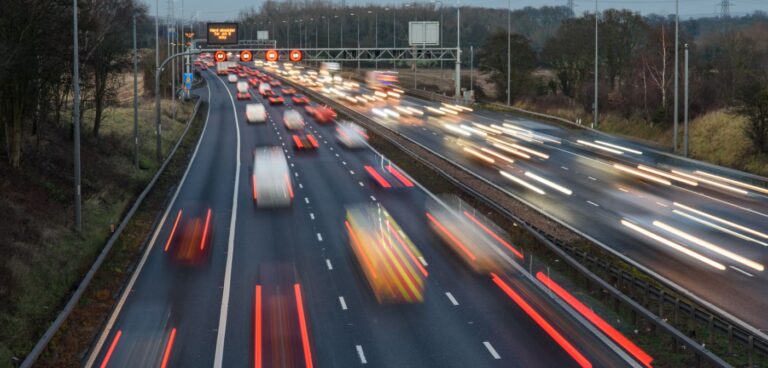The UK government has announced £30m in funding for new projects to decarbonise highways across the UK.
Seven projects in total have been awarded funding through the Live Labs 2: Decarbonising Local Roads competition.
The scheme was established to support local highway authorities and is focused on the long-term decarbonisation of road infrastructure.
One of the winning projects included an initiative to cut carbon emissions from street lighting by producing asphalt from green waste like grass cuttings.
Richard Holden, roads minister, said: “The UK is a world leader in technology and innovation and we must use that strength to drive decarbonisation and the next generation of high tech jobs that go alongside it.
“We are supporting this vital agenda to help level-up through £30m funding for ground-breaking projects and boosting regional connections to support growth.
“The government is determined to create good, well paid jobs – via innovation and investment across the UK –as we accelerate the road to net zero.”
The seven successful local highways authorities and their partners will be provided funding, which is subject to due diligence. This will then be used to develop, test, pilot and roll out new technologies to facilitate decarbonisation, including in supply chain emissions.
The seven successful bids are:
- Highways CO2llaboration Centre for materials decarbonisation by Transport for West Midlands
UK Centre of Excellence for Material Decarbonisation in Local Roads by North Lanarkshire Council for creating a centre that will develop a materials testing programme identifying and deploying technology for road construction - South Gloucestershire Council and West Sussex County Council’s net carbon-negative model for green infrastructure management
- A382 Carbon Negative Project by Devon County Council, which aims to drive changes to the design, construction and maintenance in typical aspects of highway construction to cut carbon emissions and develop new active travel infrastructure
- Liverpool City Council for its ‘Ecosystem of Things’, which explores a scalable and transferrable approach to understanding various systems (including design, public spaces, materials/process technology, recycling infrastructure, etc.) at a city-wide level to embed decarbonisation initiatives, such as decarbonised street lighting
- East Riding of Yorkshire Council, which plans to work on increasing efficiency for low carbon lighting to make sure lights can still be clearly seen by drivers and to create a framework for an alternative manual for highway lighting, signing and road marking
- Net Zero Corridors by Wessex Partnership, which is intended to pioneer net zero roads that are built without creating additional carbon emissions overall in Somerset, Cornwall, and Hampshire to develop nine ‘net zero corridors’ that link rural and urban areas.
Live Labs 2 was established to ensure such innovations are shared across the whole of the UK, with bidders being encouraged to create partnerships across the public and private sector, as well as with academia.
It is funded by the Department of Transport (DfT) and organised by The Association of Directors of Environment, Economy, Planning & Transport (ADEPT).





